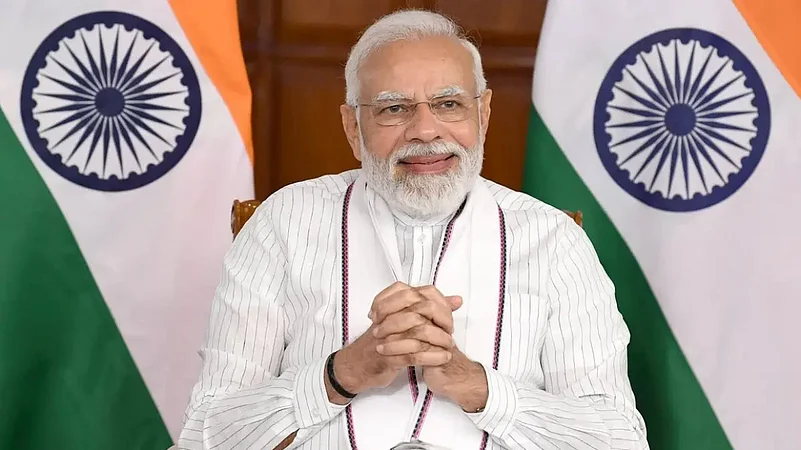The Cabinet on Wednesday in New Delhi approved the national logistics policy, which aims at reducing transportation costs and improving the global performance of the sector.
Prime Minister Narendra Modi last week unveiled the policy which seeks to cut transportation costs by promoting the seamless movement of goods across the country.
While launching the policy, the prime minister had said that "from 13-14 per cent (of the GDP), we should all aim to bring the logistics cost to single-digit as soon as possible".
An official statement said that the policy is targeted to reduce the cost of logistics in India to be comparable to global benchmarks by 2030; improve India's ranking in the Logistics Performance Index from 44th in 2018, and create a data-driven decision support mechanism for an efficient logistics ecosystem.
The target is to place India among the top 25 countries by 2030, Information and Broadcasting Minister Anurag Thakur told reporters while briefing the media about the policy.
It added that to monitor its implementation, the policy will utilise the existing institutional framework - the Empowered Group of Secretaries (EGoS) created under the PM Gati Shakti national master plan.
The EGoS will also set up a Services Improvement Group on the pattern of a network planning group for monitoring parameters about processes, and regulatory and digital improvements in the logistics sector.
The focus will also be on enabling adequate development of warehouses, promotion of standards, digitization and automation across the logistics value chain, and better track and trace mechanisms.
Important initiatives under the policy include the Unified Logistics Interface Platform (ULIP), the Ease of Logistics Services platform, and the e-handbook on warehousing.
Fourteen states have already developed their respective logistics policies and for 13 states, it is at the raft stage.
"This is expected to reduce logistics cost to achieve global benchmarks and improve country's Logistics Performance Index ranking and its global positioning," it added.
Commenting on the policy, Arshdeep Singh Mundi, Managing Director, Jujhar Logistics, said that it is a significant step towards strengthening the logistics sector using the integration of efficient measures.


























